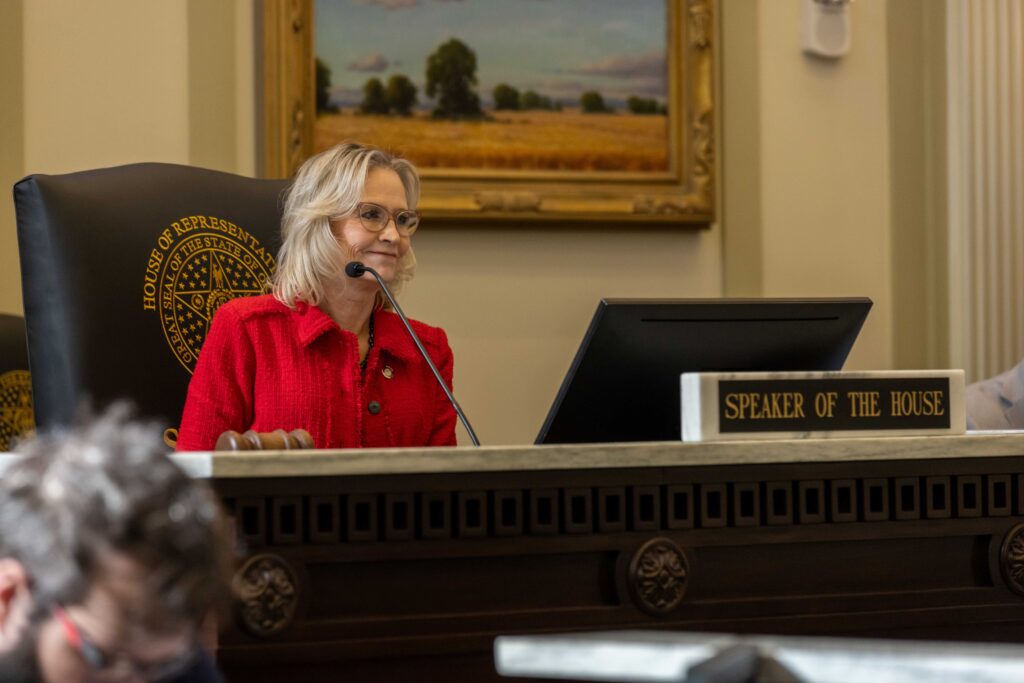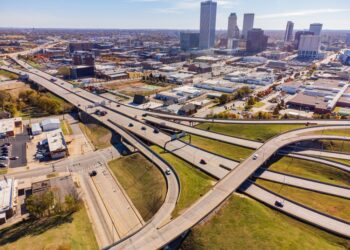OKLAHOMA CITY (OBV) – Oklahoma has a growing shortage of civil engineers, a concern that the State Legislature is working to address by incentivizing Oklahomans to enter the civil engineering field.
Rep. Nicole Miller, R-Edmond, wrote House Bill 2260. The bill seeks to give tax incentives to civil engineering students and employers to grow Oklahoma’s civil engineering workforce. Sen. John Haste, R-Broken Arrow, wrote the Senate version of the bill.
Miller spoke with Oklahoma Business Voice and likened the bill to tax credits previously created to grow Oklahoma’s aerospace, automotive and cyber & computer science industries. It’s a necessary bill because there is an increasing shortage of civil engineering students in Oklahoma, according to Miller.
“Essentially what we’re doing is incentivizing people to go into the civil engineering field. Within the STEM field, we don’t find as many [Oklahoma] students going into civil engineering,” Miller said.
Civil engineers are essential to the infrastructure of any state. They plan and design the construction and maintenance of roads, bridges and water systems.
“What’s the one public service we use every single day? Roads and bridges. So, it’s incredibly important that we maintain the ones we have and that we continue to build out our transportation system throughout the state,” Miller said.
HB 2260, in its current form, establishes three tax credits for civil engineers and their employers beginning tax year 2026. Those incentives are as follows:
- A tax credit is for engineering businesses that employ a civil engineer will receive a tax credit equal to 5 percent of the compensation paid to an engineer until January 1, 2031. The employer will receive a 10 percent tax credit if the engineer they hire graduated from an Oklahoma college or university. The credit is capped at $12,500 per employee, per year and may be claimed for up to five years.
- An employer can also claim another tax credit for up to 50 percent of the tuition reimbursed to an employee for up to four years of employment until January 1, 2031.
- A tax credit of $5,000 per year, for up to five years until Jan. 1, 2031, is available to the hired civil engineer.

The civil engineer shortage is a growing concern across the nation, according to the American Society of Civil Engineers (ASCE).
An ASCE article state that there are not enough civil engineers in the U.S. to meet the nation’s infrastructure development needs.
Former ASCE president, Dennis Truax, referenced U.S. Bureau of Labor Statistics data in 2022. That data projected a need for approximately 25,000 new civil engineers each year throughout this decade.
“However, this number is based on the need to replace workers; it does little to consider the impact of the (Infrastructure Investment and Jobs Act) and civil engineers’ roles in its implementation,” Truax said.
The civil engineer shortage has been acutely felt in Oklahoma as well.
Mike Thompson, president and CEO of the American Council of Engineering Companies (ACEC) Oklahoma, hopes the tax incentives will lead to more civil engineering students and professionals in Oklahoma the same way the aerospace tax incentive facilitated aerospace industry growth.
“We believe that the civil engineering incentive will be successful as well. And we believe it will be successful in retaining Oklahoma students. We think it’ll be successful in attracting civil engineers to the state of Oklahoma. We’re hoping it’ll bring more civil engineering firms into Oklahoma as well. One of the biggest issues that we’re facing is simply the lack of civil engineers,” Thompson said.
Oklahoma is struggling to retain the civil engineers educated in the state.
Thompson provided ACEC data which shows that there has been a decline in civil engineering students. He said there are many talented engineering students at the University of Oklahoma and Oklahoma State University, but both universities are seeing less and less civil engineering graduates.
OU had 211 civil engineering graduates in 2019, and OSU had 273. In 2023, OU had 172 civil engineering graduates, and OSU had 186.
“We are not seeing the interest shared in going into the civil engineering space, but we also don’t know if it’s just [lack of] interest, if the other disciplines of engineering are doing a better job at attracting students or if folks are not graduating high school with the [needed] skillset. It could be an all-of-the-above type issue, but we are seeing a decline,” Thompson said.
Data shows that not enough civil engineering graduates are staying in Oklahoma.
“The average percentage of civil engineers who graduate from an Oklahoma college and then stay in Oklahoma for five years is only 41 percent,” Miller said. “We’re at a critical level with that.”
Miller also cited a 33-38 percent job turnover rate at the Oklahoma Department of Transportation.
“It’s not only about growing new civil engineers but also retaining them,” Miller said.
The more civil engineers there are in Oklahoma, the better it is for the state.
“We want to see more civil engineers here in Oklahoma because the average salary for a civil engineer is over six figures. And clearly, if you have more professionals like engineers staying in Oklahoma, they’re going to buy homes, pay the ad valorem tax, send their kids to good schools and make greater demands on the curriculum for K-12 — they’re usually very education focused. There’s a lot of good reasons why we want to attract civil engineer professionals to the state,” Thompson said.
Civil engineers are vital to maintaining Oklahoma’s transportation system. A healthy, well-maintained transportation system is needed for Oklahoma’s industries to thrive, its economy to flourish as well as its efforts to attract large corporations looking to expand.
“Our transportation system is the skeletal system of our state. It’s really what gives it foundation and structure,” Miller said. “If we’re trying to attract companies, what we have to do is have some of that critical infrastructure already done. You’re talking about public works – your pipelines, your electric, your water. Those are some of the first things that we need to really attract businesses to come to this state. They want a site-ready location, and that includes infrastructure.”
HB 2260 recently unanimously passed the Appropriations and Budget Transportation Subcommittee. The vote was 8-0.
It will next move to the full Appropriations and Budget Transportation Committee for consideration.

















